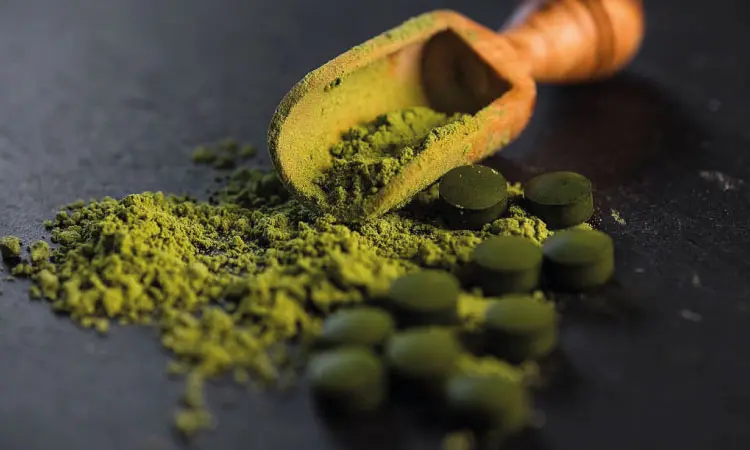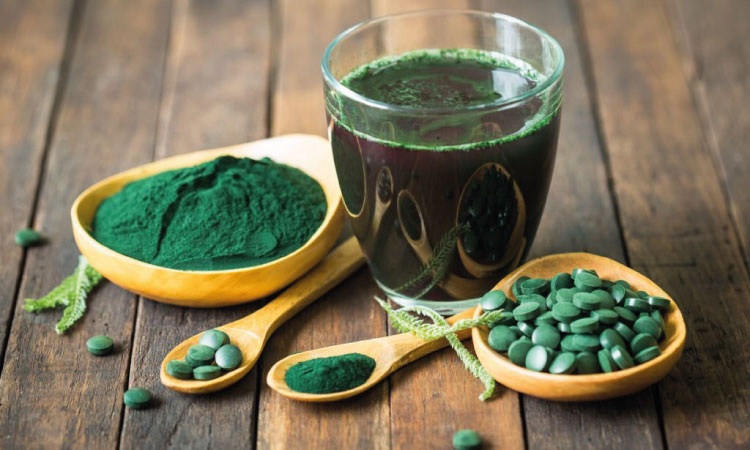Spirulina during pregnancy can be a source of some much-needed nutrients, especially protein. It is an extremely nutrient-rich supplement that is also easily digested and as such, taking spirulina during pregnancy is sure to yield you no small number of benefits. But just how safe is it? How beneficial can it be? Is spirulina bad during pregnancy if consumed improperly? Here, we shall try to answer all of these questions.
What Is Spirulina?
Spirulina is a kind of photosynthetic, spiral-shaped, bluish-green algae that is known to grow in warmer climates. It is a filamentous non-differentiated multicellular cyanobacterium. Due to its many health benefits, like how it helps in lowering cholesterol, helps boost one’s immune system, or even how helps reduce the risk of cancer, it is sold widely as a supplement and a general health booster. Buying the best spirulina for pregnancycan be tricky.
Spirulina can be bought:
- Online
- At drug stores
- At certain groceries
It can be consumed in a number of ways, including:
- As tablets or capsules
- As a smoothie
Nutrition In Spirulina
Protein is the major component of spirulina, making it a protein rich food to be consumed during pregnancy. Some people refer to it as green meat because of this. The protein content of spirulina ranges from 50-70% of its dry weight. Such a high level is uncommon even among microorganisms. Carbohydrates typically make up 15-25% of the dry weight of spirulina1.
In addition to proteins and carbohydrates, spirulina provides beta-carotene to your body. About 80% of the carotenoids in spirulina are beta-carotene2. Vitamin B12 (cobalamin) is the most difficult vitamin to obtain in a meatless diet since it is not found in any common plant food. Spirulina is a good source of B12 vitamins as well.
The iron content of spirulina is exceptional. Calcium, phosphorus, and magnesium are present in milk-like quantities in spirulina. when it comes to nutrition in spirulina, the high potassium content is also worth mentioning3.
In addition to folic acid, spirulina is rich in bioflavonoids, linolenic acid, iron, manganese, copper, selenium, and zinc. Additionally, it is a good source of vitamin C, D, E, and K. All of these elements contribute to the body’s normal functioning.
Calculate Due Date With LMP
Related Reading: 21 Pregnancy Superfoods To Include In Your Pregnancy Diet
Is It Safe To Consume Spirulina During Pregnancy?
As of yet, there is no particular scientific evidence to suggest that spirulina can be particularly harmful during pregnancy. Its high nutritional profile, still makes a pregnant woman think it is a beneficial dietary supplement during the course of a pregnancy. That being said, it is still possible that your doctor may advise you to avoid it during pregnancy in order to avoid any unnecessary risk. As such, it would be wise to consult your doctor on this matter and follow his instructions.
Benefits Of Consuming Spirulina During Pregnancy

In contrast to the widely available, artificially synthesized nutrients, spirulina contains nutrients that are biosynthesized. Meaning, these nutrients are more easily absorbed by the human body. These nutrients are also beneficial during the course of a pregnancy. Given below are some of the most noticeable spirulina benefits during pregnancy:
1. Helps improve immunity
As you may already know, pregnant women often have weakened immune systems. Consequently, they are also susceptible to many maladies, both major and minor. The beneficial effects of spirulina in boosting immunity help reduce this risk. Zinc, vitamin E, C, and B6 are among the vitamins and minerals found in spirulina, which are essential to boost one’s immunity during pregnancy. Furthermore, spirulina boosts your body’s ability to fight viruses and bacteria by increasing the production of white blood cells4.
2. Helps reduce bad cholesterol
It has been observed that consumption of spirulina in healthy quantities can quite significantly lower LDL (bad cholesterol) and increase the amount of HDL (good cholesterol) in your bloodstream. As such, spirulina can have quite a positive effect on your blood lipids. As it promotes the production of “good” cholesterols in the body while decreasing the “bad” ones, it can help prevent atherosclerosis (artery hardening). This improves blood circulation. Anything that enhances the blood flow is beneficial during pregnancy.
3. Helps maintain optimal blood pressure
Spirulina contains nutrients such as vitamin K and D, as well as calcium, which can help prevent hypertension during pregnancy. High blood pressure during pregnancy can lead to many complications. It is beneficial to maintain blood pressure with spirulina5. Additionally, spirulina contains essential fatty acids, including linolenic acid, linoleic acid, and arachidonic acid. A pregnant woman must have these essential fatty acids for hormonal balance and blood pressure regulation, which are crucial for the safe progression of pregnancy.
Related Reading: 11 Common Complications During Pregnancy And Delivery
4. Rich in beta carotene
Spirulina contains beta carotene in abundance. When beta carotene reaches the body, it is converted into Vitamin A. In addition, the lack of retinol (free Vitamin A) in spirulina eliminates the possibility of overdose. Beta-carotene, unlike free Vitamin A, does not accumulate to toxic levels. Taking very low doses of spirulina can achieve a considerable reduction of vitamin A deficiency risks during pregnancy6.
5. May help with fetal brain development
Spirulina contains high concentrations of omega acids. In addition to omega-3 fatty acids, omega-6 fatty acids are also present. Spirulina’s omega 6 fatty acid is gamma-linolenic acid, which is a plant-derived omega-6 fatty acid. Omegas are great for developing a baby’s brain during pregnancy. There are many nutrients in spirulina, including vitamins B1, B2, and B3; iron; and folic acid, which is beneficial to the brain development of a baby7.
6. Helps combat anemia
Anemia is a common problem among pregnant women. Spirulina, which contains iron and folic acid, definitely leads to an increase in hemoglobin levels and thus helps to the alleviation of anemia. In this way, spirulina during pregnancy helps to prevent iron deficiency anemia and fatigue associated with it8.
7. Women with gestational diabetes may benefit from it
Researchers found that spirulina supplementation reduced fasting blood glucose levels significantly. People with diabetes types 1 and 2 often suffer from high fasting blood sugar levels. Therefore, spirulina supplementation may aid in controlling diabetes9. Expectant mothers with gestational diabetes may benefit from this since it prevents their blood sugar levels from rising too high.
Related Reading: Everything About Artificial Sweeteners During Pregnancy
8. Help reduce allergic rhinitis symptoms
If you have allergies to pollen, dust, or pets, you may experience swelling in your nose. The condition is called allergic rhinitis. Women who are pregnant are more susceptible to allergic rhinitis. In pregnancy, rhinitis may also be caused by non-allergic factors. Researchers are not sure why rhinitis occurs more often in pregnancy, but they suggest that the larger blood volume and hormonal fluctuations make it more likely to occur by 10 to 30%. Spirulina has been shown to alleviate symptoms associated with this condition.
9. Helps combat mood swings
Spirulina may be useful in treating mood disorders, as evidenced by a few studies. Spirulina contains tryptophan, a precursor to serotonin. Among its functions, tryptophan contributes to the production of serotonin. Serotonin aids in the regulation of moods. Some mental health conditions, such as anxiety and depression, are common among expectant mothers, spirulina may provide some relief.
Related Reading: 15 Tried And Tested Ways To Handle Emotions During Pregnancy
10. Can boost up energy level
One benefit of taking spirulina is that it can boost metabolism. It is possible to feel as if you have more energy if you have a higher metabolic rate. Additionally, it could increase the number of calories they burn each day, which could aid in maintaining a healthy weight gain during pregnancy.
Side Effects Of Eating Spirulina During Pregnancy

As is the case with any kind of food, even spirulina is not without its risks. Anything, if consumed improperly or in excess, can lead to unwanted side effects and unnecessary risks. Some of the side effects that can potentially arise from consuming spirulina are listed below:
1. Risk of heavy metals
Due to its high level of toxicity, spirulina is unsafe during pregnancy even though it has many health benefits10.There is a potential risk that the spirulina you have maybe contaminated with certain heavy metals like cadmium, mercury, lead, etc. As you may very well already know, an overdose of these metals can be quite substantially harmful to your body. Mercury in particular is known to cause damage to your nervous system, your brain, and it can even lead to mercury poisoning, which can be quite fatal.
2. Risk of contamination
Spirulina may even be at the risk of being contaminated by microcystins – substances known to cause liver damage, and also a kind of harmful bacteria. These are more likely to be more dangerous to the unborn child than the parent and can pose quite an unprecedented risk for their healthy development.
3. Risk of oligohydramnios
Amniotic fluid is critical for the proper and healthy development of your baby. If the volume of the fluid goes below a certain point, it can lead to potential risks of birth defects, malnutrition, unhealthy weight loss, and even a miscarriage. It has been noted that women who take spirulina may experience such a low volume of amniotic fluid for gestational age11. This is known as oligohydramnios.
Other Risks
- Difficulty in breathing
- Inflammation of the pancreas
- Potential nerve damage
- Potential kidney failure
- Excessive thirst, vomiting, stomach pain, nausea, and fatigue
- Potential worsening of symptoms of autoimmune diseases
Related Reading: 18 Foods That Can Cause Miscarriage In Early Pregnancy
How To Incorporate Spirulina Into Everyday Recipes
As mentioned earlier, there is no shortage in the number of ways in which spirulina may be consumed. If you are not particularly fond of the pills or spirulina capsules during pregnancy, there are still a number of ways by which you can incorporate it into your pregnancy diet. Spirulina is a rather versatile food, and as such, it can be used in a variety of recipes and can be consumed in a variety of ways. These include:
- It can be used to prepare a spirulina smoothie during pregnancy
- It can be added to a number of homemade desserts, like pudding
- It can be added to yogurt
- It can be added to salad dressings
- It can be added to a glass of water or various fresh juices
Conclusion

The fact that spirulina is a superfood with a comprehensive nutritional profile, as well as health benefits, makes it a rewarding addition to your pregnancy diet. It is sure to provide a number of benefits during pregnancy, and can also help the new mother regain her health after delivery. Still, even it is not without certain risks and potential side effects and is not always recommended by physicians. As such, it would be wisest to add spirulina to your diet under your doctor’s guidance.

